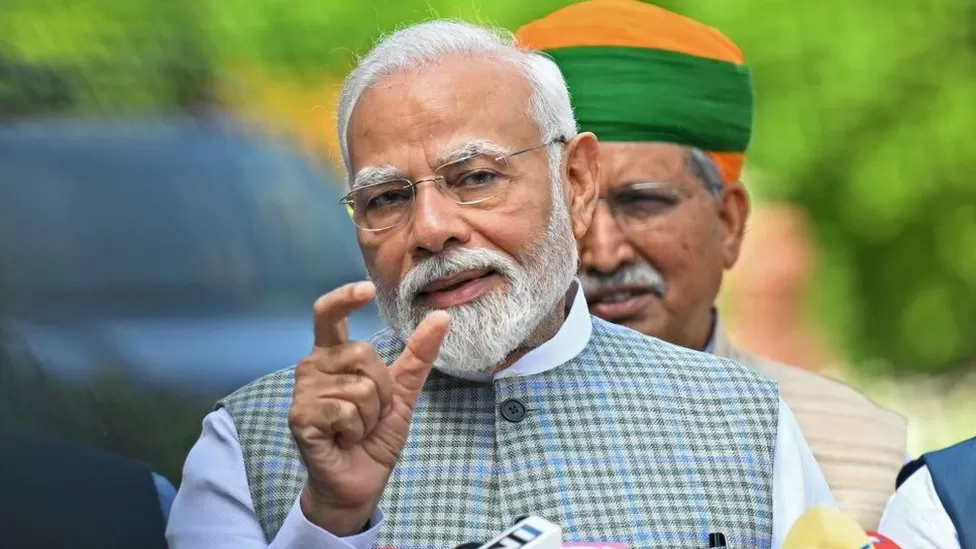Indian Prime Minister Narendra Modi has paid tribute to the country's British-era parliament ahead of a move to a new building.
He was speaking at the beginning of a five-day special parliament session that has been called by his government. On Tuesday, the session will shift to the new building after an event to commemorate parliament's legacy.
The announcement of the session last month had taken opposition lawmakers by surprise. According to the government, eight bills have been listed for discussion during the session – this agenda could be changed or expanded during the course of the week.
But opposition leaders have questioned whether a special session was necessary to discuss these bills when MPs are set to meet later this year for the winter session of parliament. Indian lawmakers usually meet for regular business thrice a year in parliament – a budget session, a monsoon session and a winter session.
On Monday, Mr Modi began the special session by commemorating the legacy of India's parliament since 1947, when the country became independent from British rule. The government has held several events to mark the 75th anniversary of India's independence.
Mr Modi said that leaving the old parliament was an “emotional moment” as the building was filled with special memories and that the structure would continue to inspire future generations.
“The biggest achievement of this parliament is that it has kept people's faith in democracy alive,” he said in a speech where he also mentioned India's successful Moon landing and hosting of the G20 summit. Ahead of the special session, Mr Modi had said that its duration may be “short” but that it would include “historic decisions”.
Special sessions are not that common – according to legislative expert Chakshu Roy, the government has sometimes convened them “for specific occasions, like commemorating parliamentary or national milestones”.
This will be the first session to be held in India's new parliament, which Mr Modi inaugurated in May amid a boycott by opposition leaders.
The announcement of the session last month had sparked criticism from opposition leaders, who questioned the government's “secrecy” over the agenda. It also sparked intense speculation, with some commentators saying that the government might call early elections or even change the country's name from India to Bharat (after a controversy erupted over a possible name change).
Other said the government may introduce a historic bill that will reserve seats for women in state legislatures and parliament – some opposition leaders also supported this during an all-party meeting on Sunday.
But the government has not confirmed any of this. Last week, it had released a “tentative agenda” for the session which listed four bills for debate, including a controversial bill that will change how India's chief election commissioner is appointed.
Opposition parties have objected to the bill, calling it “undemocratic” and saying that it will reduce the independence of the Election Commission and its officers. However, this bill is not in the list of items that the government gave to opposition leaders on Sunday.
— CutC by bbc.com


